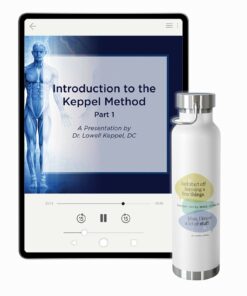Enjoy the latest installment of Dr. Lowell Keppel’s “Good to Know” series for practitioners.
Here we are, New Years! Saying goodbye (some would say good riddance) to 2022 and moving on to 2023. Lord, it’s got to be better! Along with this time of endings and beginnings, we humans look forward to change. A change of attitude, behavior, and circumstance. Starting over as it were—in short, creating a new reality. Resolving to change, we make our New Year’s resolutions.
The idea of making New Year’s resolutions has an interesting history. The practice can be traced all the way back to the ancient Babylonians, some 4,000 years ago. Their New Year coincided with the planting of new crops in mid-March. During the 12-day festival known as Akitu, the Babylonians would reaffirm their reigning King or crown a new one. At this time they also made promises to the gods for favors.
Romans changed the calendar during the time of Julius Caesar (46 BC), making January 1st the beginning of a new year in honor of the god Janus, who symbolically looked both backwards to the previous year and forward to the year yet to come. Today, we make resolutions—promises to ourselves instead of the gods. But why do we make these self-sacred promises every New Year, just to so often fail to keep them?
I asked my daughter Rachel and her husband Nick, and their answers were inspiring. “I think people set good intentions, but fail to follow through,” said Rachel. Nick then added, “People set their expectations too high. Maybe people should break them down into more attainable goals.”
I agree with both of their statements. In fact, they are the inspiration for this blog post. Why do we set such great intentions only for it all to just slip away? It seems to be a pattern, and next year we are in the same position as the year before, and the before that, and so on.
From my experience, it boils down to two things:
- The change I desire must bring me more benefit than the current behavior I want to change.
- Gratitude = thankfulness. Gratitude, when applied, will enhance the first point above.
If you focus on these two things, you will be successful in getting the changes you want.
As I learned from my mentor Dr. Scott Walker (developer of the Neuro-Emotional Technique), when dealing with an addiction you must make the new behavior more desirable than the addiction. (News alert—you are addicted to your current way-of-being.) You must be willing and able to find reasons that make the new behavior more desirable than the old behavior. Smoking, being overweight, not exercising, whatever your issue is! Can you find more pleasure and satisfaction in being a nonsmoker, being thinner, or exercising? If you can focus on that, making the changes you need to make becomes easier. You will be moving toward what you desire.
You may have noticed that when you want something—I mean when you really want something—you find a way to get it. There is nothing you cannot do if you truly want it bad enough, even if it isn’t easy to attain.
So how does gratitude fit in? Be thankful for the support available in our society for quitting an addiction, achieving a healthy weight, or finding a method of movement and exercise that works for you. Be thankful for the joy and happiness in your life. Sometimes we fail to recognize what is joyous, but it’s there! We all have moments of joy. Personally, my life changed when I began to practice gratitude. If I find myself in a situation that is not desirable, I start thanking God for whatever joy and good things I can find about the situation, or I thank the people in my life. And then things start changing for the better. For example, instead of worrying about the money that I owed, I started being thankful for the money that I did have to pay my bills, and for whatever amount was leftover. Then I took it to another step—I said thank you for the abundance! Instead of being sick and concentrating on my discomfort, I would show gratitude for feeling good and energetic.
Okay naysayers, I hear you out there. A research study on gratitude looked at adult college students who sought counseling for depression and anxiety. The participants were divided into three groups: Group 1 was instructed to write one letter of gratitude to another person each week for three weeks. Group 2 was asked to write about their deepest thoughts and feelings about negative experiences. Group 3 did not do any writing activity. All groups received counseling sessions.
Results? Yep, you guessed it—at 4 weeks and 12 weeks, Group 1 reported back with significantly better mental health. This exercise revealed amazing insights about gratitude, including the lasting effects of gratitude on the brain!
Changing the way we think is a great start, but giving our bodies the proper nutrients for maintaining our lifestyle changes is a must. I can enhance my results of gratitude by supporting my body with Standard Process and MediHerb products. It is difficult, if not nearly impossible, for me to change my way of being if I am malnourished and toxic. I would recommend you do a complete nutritional work up on your patients, and get one done for yourself (by someone else). You can use the System Survey form and the Toxicity Questionnaire. I use Standard Process brain support products such as Neuroplex and Hypothalmex. I also use MediHerb products such as Rhodiola & Ginseng Complex and Rhodiola & Schisandra.
So let me start off, “I am happy and grateful for YOU, Standard Process West, Selene River Press, the wisdom of Dr. Royal Lee, my family and friends, and, of course, the abundance I enjoy every day!”
Happy 2023! Together let’s make a difference. And as always, RESULTS REFER!
Images from iStock/shironosov (main), fizkes (post).





